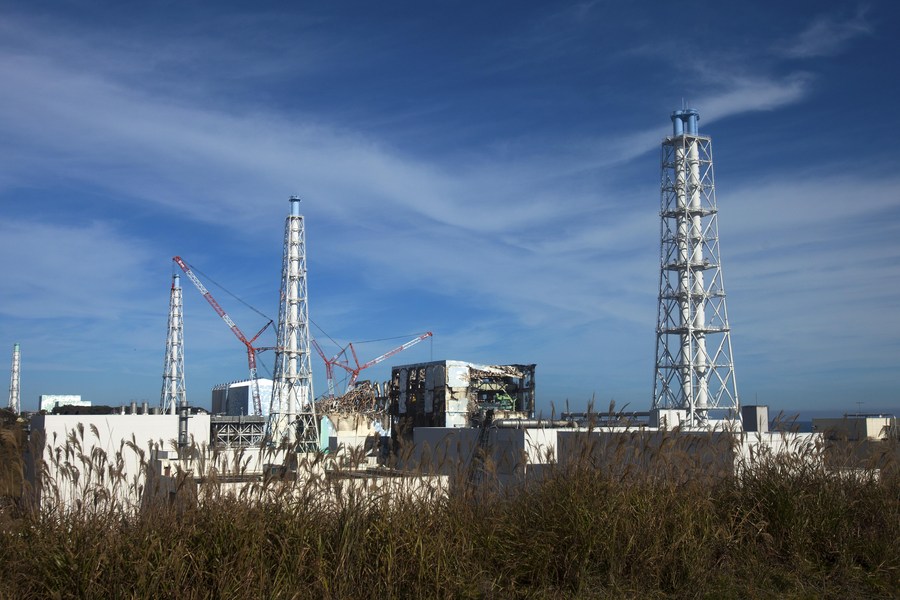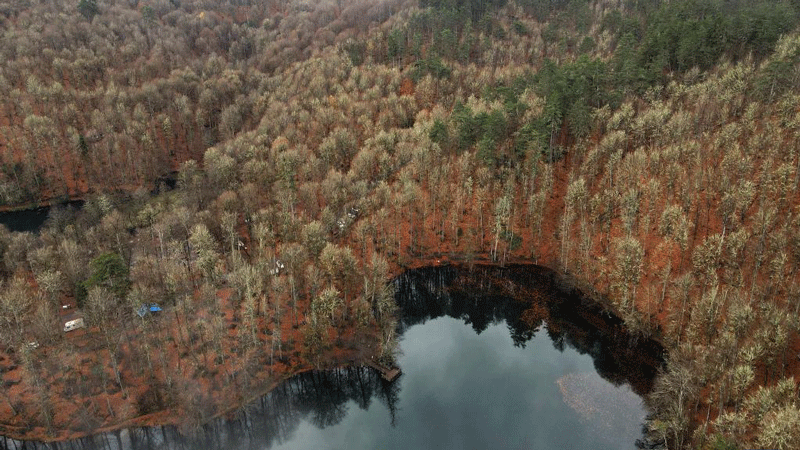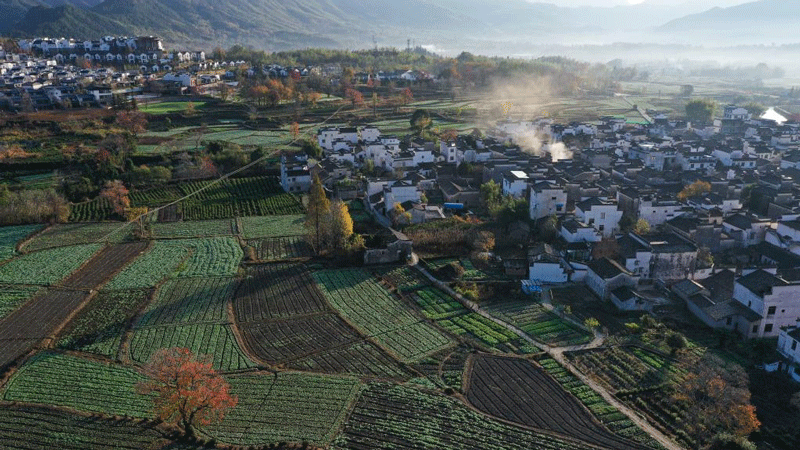Japan mulls extending service period of 60-year-old nuclear plants amid fuel shortages

File photo taken on Nov. 12, 2011 shows the exterior of Fukushima Daiichi nuclear plant in Fukushima Prefecture, Japan. (Xinhua)
Japan plans to keep some nuclear reactors operating beyond a current 60-year limit as the country focuses increasingly on nuclear power as a solution to an ongoing energy crunch.
TOKYO, Nov. 29 (Xinhua) -- Japanese government on Monday proposed action plans to keep some nuclear reactors operating beyond the current 60-year limit amid the country's policy shift on nuclear energy as a solution to energy supply shortages.
Despite the limited lifespan of reactors, officials are working on a scheme that would allow some facilities to operate for longer, according to a document released by the Ministry of Economy, Trade and Industry.
Specific measures will be taken to reconstruct nuclear power plants that were decided to be abolished, and under the current law, the maximum operating period of 60 years can be extended, the ministry noted.
The country plans to proceed with the development and construction of a next-generation innovative reactor that incorporates a new safety mechanism, it said.
A draft plan was presented on Monday at the Atomic Energy Subcommittee of the Advisory Committee for Natural Resources and Energy, an advisory body to the trade ministry, while the final decision will be made at the government's green transformation (GX) implementation meeting by the end of the year.

File photo taken on Oct. 12, 2017 shows huge tanks that store contaminated radioactive wastewater in Fukushima Daiichi nuclear plant, in Fukushima Prefecture, Japan. (Xinhua)
After the 2011 earthquake-triggered tsunami disaster at the Fukushima nuclear power plant, the operational life of Japan's nuclear reactors was limited to 40 years, under stricter safety protocols.
To extend a reactor's lifespan by a further 20 years, however, the government made it possible for some of these idled reactors to potentially be brought back online, provided they implement safety upgrades and pass safety tests by regulators.
In August, Prime Minister Fumio Kishida said the government was considering constructing next-generation nuclear reactors, and that it also aimed to restart seven more idled reactors from next summer.
The prime minister also discussed extending the operational life of nuclear power plants by not including the periods in which they were shut down while under review by the Nuclear Regulation Authority, which could spur concerns.
Japan has set a target for nuclear power generation to account for 20 to 22 percent of its electricity supply in fiscal 2030, and the government has been considering re-expanding nuclear power after extreme weather and global fuel shortages affected the country's power supplies.
Photos
Related Stories
- Support rate for Japan's Kishida cabinet drops to new low: media poll
- Australian state on alert for Japanese encephalitis
- Japan's space agency fails to land probe on Moon due to communication issues
- Japan's Kishida appoints new internal affairs minister
- Tokyo raises COVID-19 alert to second-highest level amid fears of entering new wave
- Japan's economy unexpectedly shrinks in July-September amid inflated imports costs, yen's slide
Copyright © 2022 People's Daily Online. All Rights Reserved.









